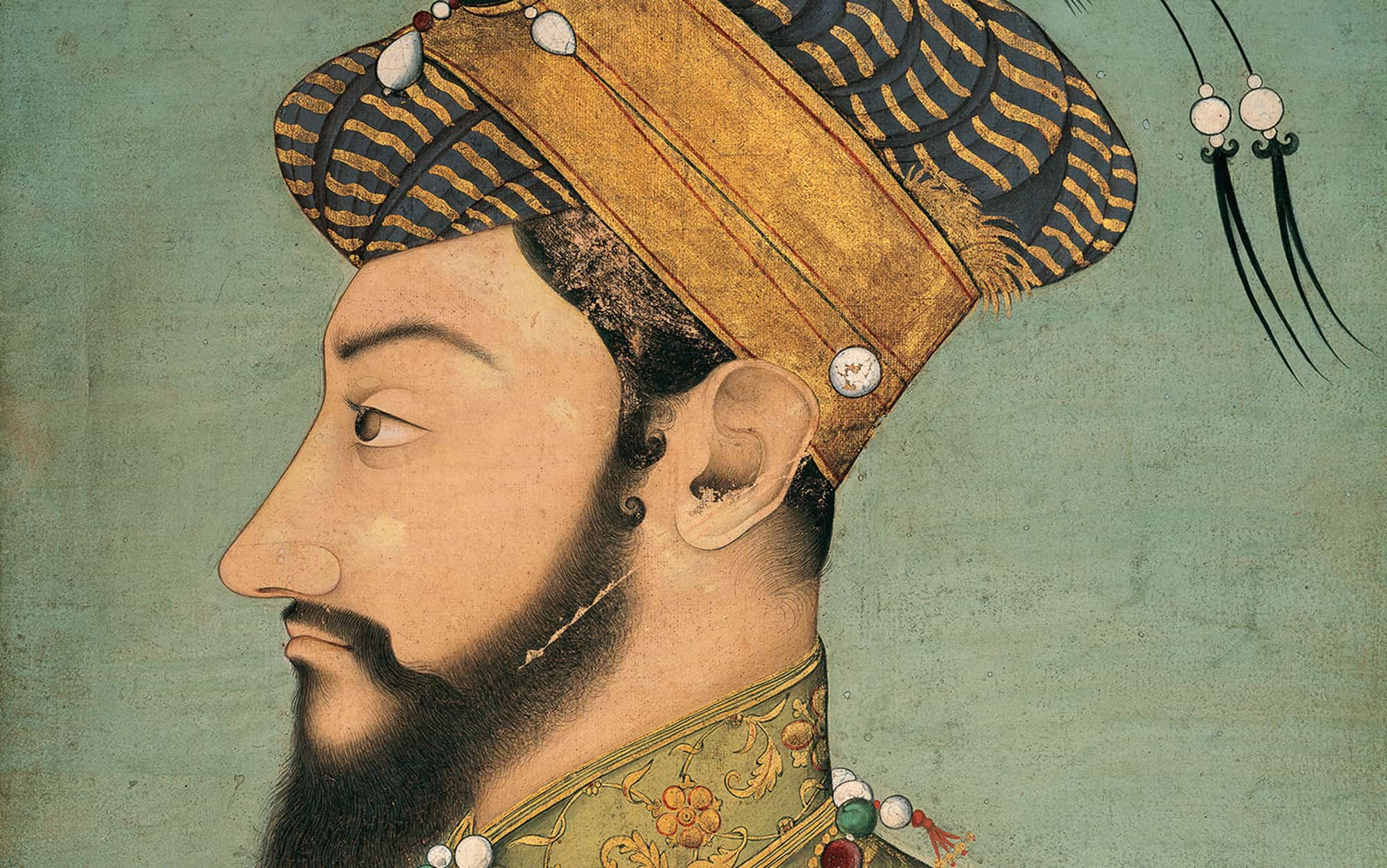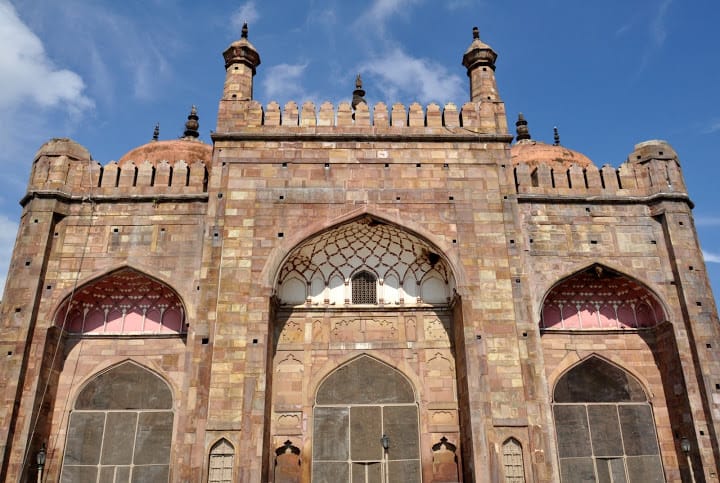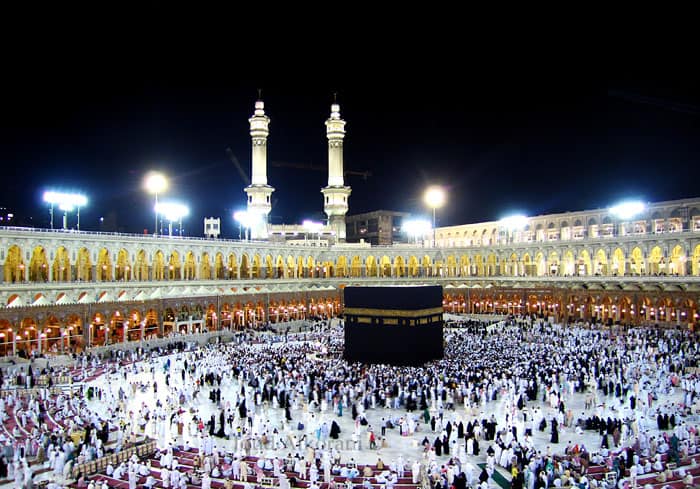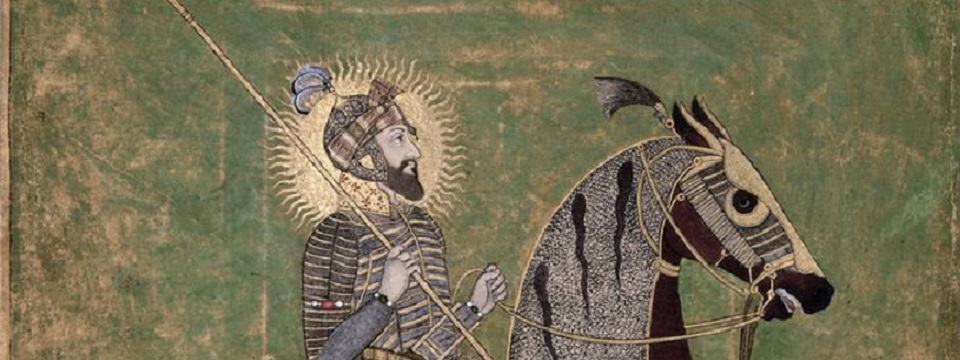He was the great ruler of the Mughal Sultanate under whose watch Islam flourished in the subcontinent, reaching its high watermark before the military defeats at the hands of Hindu forces in subsequent decades, and before its eventual collapse under the pressure of the British.
Aurangzeb’s dedication to the cause of Islam, his strong leaning towards the fuqaha’, and his profound personal piety (bordering on asceticism) have led some Muslim historians to put him in the same category as ‘Umar ibn Abd al-‘Aziz.
The long reign of Aurangzeb delayed the process of the disintegration of the Mughal Sultanate for several decades, while territorial expansion during his reign was also immense. Even in his old age, he constantly and vigilantly busied himself in combating the multiple historical and social forces working against the Mughal Sultanate and the Muslim community.
Certainly, there is deep sorrow and grief upon remembering the fall of Al-Andalus (Spain) by the Muslims. Yet, Al Andalus was like one of the small provinces or cities in India which were ruled by the governors of the Sultan. The Muslims have left in Al Andalus the Cordoba mosque as a great monument, while the Badshahi Mosque of Lahore and the Jama Masjid in Delhi are examples of the uniqueness, glory, and beauty of Muslim Indian culture. In Andalus the Muslims left the Alhambra Palace and the Alcazaba Fortress of Malaga which are inspiring monuments, and we find that the Muslims left in India the Agra Fort, whose beauty astounds even today.
Certainly Andalus produced great and knowledgeable people, but if a student of history is asked to recount the names of the ‘Ulama of India, the list would be arguably much longer. It is true that Andalus has produced great Khulafa’a, rulers and other notable people, but some of the Indian rulers, such as Sultan Aurangzeb Alamgir, earn a similarly high status.
Birth and Upbringing
Sultan Aurangzeb Alamgir was born in Dahod, a city in the Indian District of Gujrat on 15 Dhiul-Qa’dah 1028 AH, 24 October 1616 CE. He was trained and brought up in an honourable and prosperous family. His father, Sultan Shah Jahan, was among the great Indian Mughal rulers. The construction of the great Taj Mahal mausoleum, one of the seven wonders of the world, was ordered by him. Its construction was completed in twenty years and with more than 21 thousand workers.
During the last days of his life, his father exhausted all his efforts struggling to building the tomb of his beloved wife and spent his time in grief remembering her. Due to this, the kingdom became weak whilst anarchy and a series of rebellions began which forced Aurangzeb to take away the government from his father. As we will explain further, he ran the government in the name of his father and established the truth and justice of Islam.
Bravery in the face of danger
From childhood, Aurangzeb showed signs of nobility and glory and was the recipient of good fortune and was also a brave cavalryman. Regarding his courage, it is related that when he was fourteen he came with this brothers to his father Shah Jahan at a party, in which there was a wrestling area and war elephants present. Suddenly, an elephant came charging towards Aurangzeb. The horse Aurangzeb had been riding was attacked by the elephant with its trunk, and he fell to the ground. Though the elephant continued charging towards him, he did not run away and stood his ground. The people around him were astounded by his bravery, as he fought the elephant with his weapon, until the guards arrived and drove the elephant away.
Study of Islam
He was trained such that he loved religion and knowledge. Even in childhood he was very religious and used to keep himself away from the life of luxury and he learned the Fiqh of Imam Abu Hanifah. His training and upbringing were purely on Islamic lines. His great grand father, Jalaluddin Akbar, in the last days of his life, forced people to adopt “Deen-iIlahi” (“Religion of God”) – an attempt at forging a unified creed derived from Islam and Hinduism. Jalaluddin Akbar banned jizya from been taken from Hindus and other non-Muslims. He took many such actions which were never before taken by any Muslim ruler.
No one resisted him, but a Sheikh by the name of Ahmed Sirhindi soon attempted to oppose such measures. He began calling upon the civilian and military leadership, asking them to remember Allah (swt). They were shaken by him and religious zeal was ignited in their hearts. Upon the death of Akbar, Jehangir handled the affairs of the Wilayah. The son of Sheikh Ahmad Sirhindi, Sheikh Mohammad Masoom, raised Aurangzeb with utmost attention, training him on a strong religious basis. He learned the Noble Qur’an with tajweed, Hanafi fiqh, gained brilliance in calligraphy and excellence in riding and warfare. He loved poetry and was a poet himself. He learnt the Arabic, Persian and Turkish languages. Even from his childhood, Aurangzeb possessed the attributes that would make him a great ruler.
Aurangzeb as a leader
Aurangzeb had two brothers, Shuja and Murad. Shuja took the ruling of Bengal, Murad took the ruling of Baksh of Gujarat and Aurangzeb the ruling of the Deccan state, in the middle of India. Aurangzeb quickly gained knowledge of administering the affairs of the Wilayah, such that he was among the best rulers. He led his own army during the reign of his father, to crush rebellions, freeing the land from unrest and he ensured justice. When his mother, Mumtaz Mahal died, Sultan Shah Jahan, who was deeply shocked and saddened, built a tomb as a memorial for his wife. He spent huge amounts of wealth on it and forced people to work hard to build it.
Subsequently, the Wilayah became neglected and riots and revolts broke out, and during those days the Sultan busied himself with gazing steadily at the grave of his wife. He had also ordered a black tomb for himself to be built in front of the tomb of his wife. At that time Aurangzeb’s brothers sensed weakness and sought to take hold of power.
Aurangzeb though, opposed that and was able to take the government into his own hands and crushed the rebellion raised by his brothers. Aurangzeb then announced his authority upon the Wilayah and at that time he was forty years old. He started a reign of justice and truth, with the Muslims having the chance to see some of the attributes of Abu Bakr, Umar, Uthman and Ali (ra) in the personality of Aurangzeb Alamgir.
Aurangzeb as a Ruler
Some people think that upon assuming power, Aurangzeb was inclined towards reclusive worship, leisure and rest, especially because he was a religiously minded man. That was not at all the case as spirituality was not seen as a sword that cut connections to the dunya but rather purified our existence within it. Spirituality is that we must obey the commands of Allah (swt) and must reject the commands of other than Allah (swt) and strive for Islam. Aurangzeb also ruled on the same basis, implementing Islam, and he did not incline towards simple leisure and rest.
Expansion of the Mughal empire
Indeed, he spent all his of life wearing battle armour and for fifty-two years engaged in jihad, until the Indian sub-continent during his reign (1658-1707) ranged from the Himalayan mountains to the Indian Ocean, and from Bangladesh to the borders of Iran. He took control of this expanse of land in his hands, but kept the Wilayah in the name of his father. So Aurangzeb succeeded in converting the Indian subcontinent into the Islamic Mughal Wilayah under one leadership. During his reign, the Muslims fought more than thirty battles out which eleven were fought under his personal command. He also defeated the Portuguese navy at sea.
Establishing justice and building the society
Aurangzeb cancelled eighty taxes and reimposed jizya on non-Muslims which was cancelled by his ancestors. He established mosques, baths, monasteries, schools and hospitals. He repaired roads and built gardens. During his rule, Delhi became one of the world’s most modern and populous cities. He appointed judges and sent his deputy to each province to announce on his behalf that if anyone has any right upon him it should be bought to the notice of his deputy so that he could bring it to the Sultan.
Aurangzeb acted boldly upon the Islamic commandments and therefore eliminated the idolatrous festivals, such as Nowruz celebrations. He banned lengthy eulogies at the time of attendance at court and allowed only the Islamic greeting of salam. Likewise he banned the import of liquor and drove out musicians and singers from the court. He ordered the construction of the splendid Badshahi Mosque, located in the city of Lahore in present day Pakistan, which is a grand sign of Muslim historical influence even today.
Asceticism, and humbleness
He used to break the fast in the month of Ramadan with some barley bread and that too from the labour of his own hands, by selling the Holy Qur’an written himself and not from the public treasury of the Muslims. He could not perform Hajj so instead he sent two copies of the Holy Qur’an written by himself, one to Mecca and the other to Medina. He was a pious man and treated scholars with humility, remaining in their company and listening to their advice and valuing it. He had ordered his commanders to listen to the spiritual advice of the scholars with sincerity and concentration.
Once he heard that his deputy in Bengal had made a throne for himself on which he sat. He reprimanded him and ordered him to sit among the people. Aurengzeb used to fast regularly every Monday, Thursday and Friday. He prayed in congregation on time with the everyday Muslims. He himself recited the Qur’an during taraweeh prayers and secluded himself to the mosque for i’tikaaf in the last ten days of Ramadan.
Effort to meet the needs of the people and consult with them
He appointed employees who audited the state of affairs of the people and presented them to him. Unlike his predecessors, he stopped the custom of accepting gifts. He used to sit three times daily to hear directly the complaints and issues of the people, without any guard or watchman in place to hinder them. He took two decisions, which none among the Muslim rulers had taken before him. Firstly for a gift or benefit received by any scholar, it was mandatory on him to provide a service in return. For example, he was asked to write a book or to teach so that he would not become lazy, in the habit of taking free benefits and consequently would not become sinful through hiding knowledge and taking benefits unjustly.
Secondly, he was the first ruler who registered the Islamic legal orders in a form of a manual so that it could be used as a source of law. Thus, the manual derived from the Hanafi school of fiqh, “Fataawa Aalamgiri” or “Fatawa Hindiyyah” was written under his supervision.
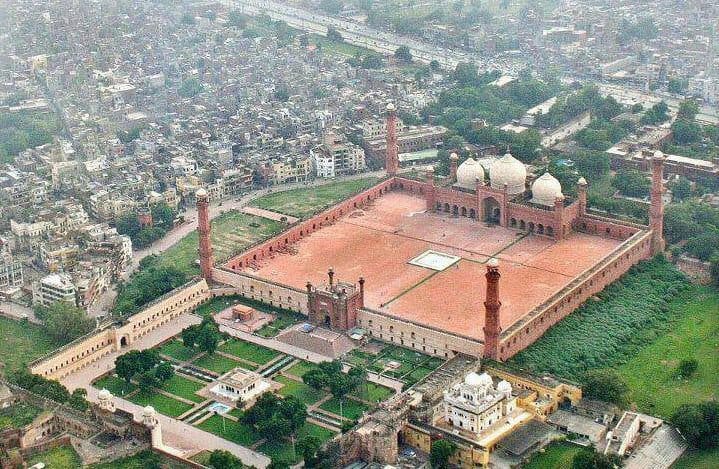
The Badshahi Masjid, Lahore, also commissioned by the great Mughal Sultan Aurangzeb and constructed between 1671 and 1673.
Death of Aurangzeb
Aurangzeb died on 28 Dhu al-Qaʿda 1118 AH, or 20 February 1707, after he ruled for fifty-two years. He was an extremely pious man, such that when his death was nearing, he ordered that he may be buried in the nearest graveyard of the Muslims and the price of his coffin cloth must not be more than five rupees. The Sultan was ninety years old and even at that age he commanded the army himself and recited the Holy Qur’an. Such were our ancestors who had abandoned leisure and had dedicated their lives to Allah (swt).
With the death of Sultan Abu Al Muzaffar Mohiuddin Mohammad Aurangzeb Alamgir (ra), the distinguished and magnificent Muslim rule of India came to an end too. Then came weak rulers one after the other, with the British taking over the region soon after and the area of Al Hind has been without Islam, indeed without any real stability, security or justice, ever since.
Since then, the rule of Islam has not illuminated the vast territory of the Indian subcontinent. Muslims should be reminded that their lands are connected with one another, whereas on the world map today India, Pakistan, and Bangladesh are shown as separate lands, whilst previously the entire area was a Muslim dominated region. Then came the scheming British who ensured its division and weakness.
It is only with the coming of Islam to the region once again and the restoration of sincere Muslim rulers like the great Aurangzeb that the region can once again prosper.
![]()












